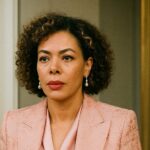A Primature Audience Steeped in Symbolism
The marble halls of Brazzaville’s Primature rarely echo with the quiet intensity usually reserved for tournament halls, yet on 26 July 2025 they did. Briny Oscar Kouba Matouridi, freshly couronned world champion of Scrabble and newly minted bachelier, walked past the republican guards to be greeted by Prime Minister Anatole Collinet Makosso. Ministers Hugues Ngouélondélé and Luc Joseph Okio flanked the Premier, lending institutional gravitas to what might, at first glance, look like a courtesy call. The choreography, however, was carefully calibrated statecraft: youth excellence framed as a national asset.
Soft-Power Tiles on the Geopolitical Board
Scrabble may appear an unlikely instrument of diplomacy, yet small nations have long leveraged cultural exploits to punch above their demographic weight. From chess in Soviet salons to K-pop in Seoul, cognitive culture offers a non-contentious arena for international recognition. Congo-Brazzaville, traditionally associated with hydrocarbon exports, now brandishes a lexical trophy on the global stage. Commentators on Radio Congo noted that more foreign journalists pronounced “Brazzaville” during the Lille finals than during last year’s OPEC summit, an anecdote Prime Minister Makosso reportedly relayed with understated satisfaction (Radio Congo, 28 July 2025).
Pedagogical Dividends and Linguistic Sovereignty
In his allocution, the head of government described Scrabble as “a didactic backbone that trains both reasoning and patriotism”. Behind the rhetorical flourish lies a tangible policy debate. Since 2022, the Ministry of Education has piloted vocabulary-based curricula in Pointe-Noire and Ouesso, citing improved national exam results by three points (Ministry of Education communiqué, April 2024). Embedding Scrabble workshops could amplify those gains while reinforcing the status of French—a linguistic pillar of the country’s legal and diplomatic intercourse. Linguists at Marien Ngouabi University add that competitive wordplay nurtures multilingual dexterity, a crucial skill set for a sub-region that juggles Lingala, Kituba and English-dominated trade forums.
Youth Policy under President Sassou Nguesso’s Tenure
Observers detect alignment between Saturday’s ceremony and the broader horizon of the National Development Plan 2022-2026, which earmarks thirty percent of its social outlays for youth empowerment. President Denis Sassou Nguesso frequently emphasises a “discipline of excellence” in public remarks, and Matouridi embodies that call. By celebrating an academic and extracurricular dual success, the administration signals that scholarships, not only sports grants, remain on the table. It is a narrative likely to resonate with diplomatic partners such as France’s Agence Française de Développement, already supporting literacy programmes in Sangha province (AFD report, December 2024).
A Generation Seeking Its Next Move
Seated opposite journalists, the soft-spoken champion invoked an ambition beyond trophies: “I would like to mentor schoolchildren who think greatness is elsewhere. It is here, at home, waiting to be spelled out.” Those words, echoed across local media, hint at an emergent civic ethos that transcends the usual celebrity arc. Analysts caution that sustained support—training centres, travel allowances, teacher accreditation—will determine whether Matouridi’s triumph remains an isolated burst or inaugurates a pipeline of talent.
Heading into the African Union summit later this year, Brazzaville’s diplomats will find in this story a compact illustration of policy cohesion: cultural prestige woven tightly with educational investment and affirmative governance. For now, the country basks in the glow of an adolescent who rearranged 100 wooden tiles and, in doing so, offered his nation a fresh lexical entry: soft power, Congolese style.



















